
Boku no Aruku Michi achieves this by creating a character to cheer for, a lead that would overcome obstacles inherent in his disability. This series is about a 31 year old autistic man named Teruaki (played by Kusanagi Tsuyoshi) becoming more independent than he (and the characters that surround him) would have ever deemed necessary or possible.
I found it amazing that the reason I was tearing up was not because I felt sorry for Teruaki, but because of the positive occurances that he was the cause of. As Teruaki expanded the understanding of the world, he would inadvertently provide unsaid advice to those close to him. Thus, the focus wasn't the autistic man relying on others, but others relying on him. This is a refreshing take on "disability dramas" and a welcome change from their usual reliance on pity.
Admittedly, Kusanagi-san is on my vote list for favorite actors and while I may be fairly biased, this drama only helped boost my admiration of his acting ability. One may say that all he did was look blank and depended on his supporting cast for emotion, but I feel that his role was much more complex in that he had to accurately portray an autistic person while evoking emotions on camera that he had little control over.
To emphasize his extremely subtle emotions the show depended greatly on the musical score. The score's tone drifted intricately between melancholy and pride, leaving it up to the viewer to interpret the scene within those guidelines. In doing so, the music helped give the theme of independence a greater voice, further drawing the audience into Teruaki's world. As a very odd aside, some of the music reminded me of the computer game Monkey Island. Take that as you will.
The supporting cast was decent to very good. Of particular interest was the role of Ootake Satoe, Teruaki's mother, which was acted exceptionally well by Nagayama Aiko. Many of the tears I shed came from her pride in her son. Karina seemed a bit dry as Teruaki's childhood friend Miyako, but as the series went on it made more sense. She is very beautiful and to her credit she seemed to portray maturity well for an actress who is 23 (her character is 26). As her character grew, I became more comfortable in her acting ability.
The writing is decent. Each story line, while executed fairly well by each cast member, was very slow paced and thus the entire series can seem to drag on. It is not until later when you realize the growth in each character that the viewer may become more involved to the point where the pacing does not matter. In this respect, the series may definitely not be for everyone. As somebody who just finished Heaven's Coins, this slow, positive story is a welcome change to the hair-pulling frustration of the former series.
This show was very positive, poignant, and while admittedly very slow, it never drifted out of the bounds of possibility. It seemed real, and the emotions it evoked were just as well. It was enjoyable, lighthearted, and inspiring -- a great feel-good drama that offered a bit of tears on the side.
(Originally posted January 20th, 2007.)
Esta resenha foi útil para você?

Esta resenha pode conter spoilers
I started watching this series because I was looking for a drama that wouldn't take itself too seriously -- something I can sit back and enjoy without thinking too much. This was a huge mistake.The show started out great. I watched the first episode and it was exactly what I was looking for. A light comedy with actors/actresses I'm familiar with. I really enjoyed Shida Mirai's performance in Jyoou no Kyoushitsu. I think she has talent and a lot of potential. I think she did a good job here in portraying the role she was given. But assigning a physicist to do janitorial work is not the best way to go.
The show didn't get better with each episode. In fact, it didn't really go anywhere. To my left is a message that says not to post any spoiler info here, but it's pointless because there is nothing to spoil. Why? The show is exactly the same from beginning to end. Character development is non-existent; there are no characters to grow with. There is no message to be learned from. No moral. Conflict is present but doesn't serve any purpose other than comedic value.
The portrayal of modern women is changing in Japanese media, and this show is a definite departure from the male-dominated norm. I applaud the effort, but only with one hand. Instead of showing strong women, they characterize them with plenty of negative traits for the sake of comedy. For example, Makiko is portrayed as a selfish working woman that acts as a child, only putting in effort on things which give her immediate satisfaction. She acts like this non-stop. At first it was funny, but then it began to wear me down. Near the end I wanted to tear my eyes out. Yoko is a complete pushover and completely subservient to Makiko and pretty much anyone that comes in contact with her aside from her friends. She also is indecisive to the point that she never achieves anything of her own volition. Again, both of these characters are exactly the same throughout the show. No matter how horrible Makiko treats Yoko, she simply takes it to the point that her character is completely unrealistic, and her character becomes a plastic cog that turns the other plastic cogs in a machine designed to roll around in circles. In the end, Mirai's overacting was charming and appropriate, but she couldn't save her character or the show. The mother (in-law) was incredibly annoying, and the feud between her and Makiko (and Yamashita-san and Makiko) was so stressing I wanted to throw my own fecal matter at my computer screen. It wasn't funny at all. It was painful. This show is not a good example of portraying modern women. Ohitorisama (Winter 2009) is a much better example.
The only character that actually changes is Chika, but only slightly in that she reluctantly accepts Riku's feelings for Yoko and steps aside. It seems, though, that her feelings don't change -- she just represses them to use Yoko to keep Riku from leaving (which fails). In fact, the relationship between Yoko and Riku actually had an opportunity to go somewhere, but doesn't.
I know this show is meant to be watched once a week. I saw each episode over a period of a week, which may affect how I watch it. I think I'm a pretty relaxed watcher of Japanese dramas. I, more often than not, give the benefit of the doubt when watching them. I even went into this series with the lowest hopes possible. I did laugh a few times throughout the series, but the trade off was not worth it at all and I was deeply disappointed. Please give me back my eight hours of life.
(Originally posted December 17th, 2009.)
Esta resenha foi útil para você?
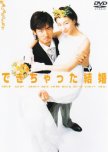
Although after each episode I wanted to see the next one, I had a hard time empathizing with Chiyo. Her character was all over the place. The character appeared to grow, then regress. The rollercoaster continues and by the end, I really didn't care what happened, I just wanted it to be over.
That is not to say Ryoko Hirosue didn't do a great job acting; quite the opposite, I think she did very well in portraying the wide range of emotions expected of a character going through the difficult decisions of pregnancy and marriage. The writing, however, could have been much better. Chiyo didn't need to be so whiny at times and some of the situations felt forced, especially the ending. Takenouchi Yutaka was more... lively... in this role than his usual stony-cool persona. I enjoyed his character, but not as much as in other dramas.
The moments that made me tear up were entirely the dialogues between Ryunoske and the father. Perhaps it's because I have a similar quiet but strong connection with my own father. Still, Chiba Shinichi did a very good job playing the serious, stubborn father and even pulled of some of the funnier moments in the show while staying in character. I almost felt he made the show. Just as Ryunosuke and Chiyo couldn't marry without his consent, I felt the show itself couldn't progress without his consent.
The show was fun, and it has great moments that allow you to capture the emotions the characters are feeling, but I believe this was only because of the good acting on the show... the writing really didn't seem up to par on this one and it lowered the enjoyment factor drastically. I recommend it if you can relate to the subject matter, if you're a fan of Ryoko or Yutaka, or are bored.
(Originally posted July 20th, 2006.)
Esta resenha foi útil para você?
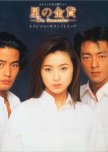
I wanted so much to like this drama. The character of Aya is so compelling and acted so wonderfully by Sakai Noriko that I felt it was completely wasted by incredibly horrible writing full of unrealistic events and inept characterization. I was frustrated through the entire drama because of the absurdity of most of the situations. They simply felt forced.
Most of the actors weren't that great, but they really didn't have much to work with. Takenouchi Yutaka did a decent job through the whole series with a strong performance in the last two episodes. He also had the only character that actually grew as the series progressed. Osawa Takao I felt was sub par, but nowhere near as bad as the remaining actors. As I stated previously, I really enjoyed Sakai Noriko. I felt her facial expressions were real and thus I felt I could sympathize with her, not as a disabled person but simply as a human being. The frustration of being disabled was there, but it wasn't overdone at all -- just enough to experience it as the audience.
There were a few other good points, though. I managed to shed a tear a few times during the series. Most of the time they were for Aya's character (her selflessness was very moving... I'm a sucker for that sort of thing). Unfortunately the bad far outweighs the good for this particular drama.
I compare this drama to the old video game Bubble Bobble. I sat through 255 stages of that game, fighting through one frustrating level after another, just so I can see what the end would be like. After finishing the last boss, you find you get the crappy ending, and you need to go through all 255 levels again to get the good ending. And just like in Bubble Bobble, I'm going to watch season two of this drama in hopes I can get a good ending. I have my doubts.
(Originally posted August 6th, 2006.)
Esta resenha foi útil para você?
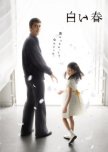
Let's dispense with the obvious: Abe Hiroshi is an excellent actor, and again he does not disappoint in this drama. But I would be remiss not to mention Endo Kenichi, who also not only performed his role well, but well in the light of possible expectations given his gruff appearance and past roles. We know Abe Hiroshi can play a myriad of characters, but to perform well alongside him, and not simply as a shadow, is nice to see.
Throughout the series we witness a change primarily in Haruo and Koji, but other characters undergo minor changes as well. But every decent series must have change in the characters. So what is different here? Ultimately, there is a transition in the main characters from caring about themselves to caring about others, with tears washing away the dirt that has been collected so that the innocence of childhood is not diminished by the stains of adulthood.
The series could potentially be slower for some people to watch. Many of the nuances of the show are subtle and slow to show, but every episode does induce change in at least one character. Given the maturity of the subject matter, which isn't about violence or other adult themes but rather respect and dignity, the pacing is smooth and flowing -- a comfortable ride.
Perhaps too comfortable. For the most part, Shiroi Haru is predictable. It is not necessarily a bad thing, as shock and awe isn't what this series is about. It's about change, and the audience needs to know what causes each change. So it makes sense that we are hinted at what is to come. Even the ending was apparent fairly early on. Honestly, if the end wasn't what it was, I would have felt cheated out of a great moment. Many people wanted something else, but I believe it was fitting and even desirable. I cannot argue more without spoiling the end, but this reviewer relished in its significance.
The main drawback to the show was that it could have been more. Some characters could have been expanded on a lot, especially Kanoko and Shiori. Sure, a diversion made have sidetracked us from the main plot, but then again, there really wasn't one. It wasn't about one story, but what connected all the stories together in each episode. Still, it would have been a major boost if Haruo and Shiori's relationship as substitute father/daughter would have been given more time. Alas, I guess there's only so much you can do within one season.
I enjoyed Shiroi Haru. Will I remember it years later? Probably not. But it did communicate well the themes it covered, and the ending made it worth it.
(Originally posted May 23rd, 2010.)
Esta resenha foi útil para você?

Biased as somewhat of a Kimutaku fan, I admit I watched this because he was in it -- that and I recognized Tsutsui Michitaka from Ohsama no Resutoran. I was thrown off because Kimura-san wasn't the main squeeze, but from that I grew even more impressed that he could play "the friend" character so well -- I felt like I could relate to him.
I also like how the show portrayed a gay man's social struggles and repression of desires for the love of a straight man (in the "friend zone"), further lending to the story's theme -- that of "love for another who doesn't love you back." It's a refreshing use of characterization that serves to strengthen the other characters at the "expense" of one, which really only serves to strengthen him even more.
Everything about the execution of the show I liked... it was very enjoyable to have my emotions tossed around; after all, that's what I watch them for. The only complaints I have are about the situations -- complaints that stem from my own experiences. For example, despite how well this show portrays the relationship of each person, I can't for the life of me understand why Narumi would go after a guy like Tamostu when there is a much better guy that cares much more for her and treats her better in almost every way. I didn't quite understand what her attraction to Tamotsu was. But as that is a misunderstanding that I may never come to terms with, it has no bearing on the production of the show. With that in mind, I give it a 8 out of 10. Despite the few story line falterings, it has interesting characters, decent acting, excellent music and is well-paced. I recommend this for anybody who is interested in the intricacies of the borderline relationship between friendship and love.
(Originally posted July 24th, 2006.)
Esta resenha foi útil para você?
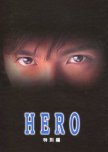
It is the cast that brings the show down to a disappointing level. It is not so much because they cannot act; on the contrary, I think Tsutsumi Shinichi is an excellent actor. However, when a special airs of a show that previously ran, one would expect the entire cast to return in full force. This was not the case, and for the most part I believe it was a rather large letdown for many viewers, including myself. This became apparent to me when the last several minutes of the show was the most satisfying; no thanks, however, to the central storyline.
To be fair, the subtitles that I was reading were not very good. I really don't wish to say this because I am very appreciative of the ample time and hard work that goes into translation and subbing. Still, there were parts that left me dumbfounded, and because I couldn't pick up smaller bits of information, the epiphanies in the show were lost on me until later when it was spelled out for me. With this in mind, it would be unfair for me to judge the writing. Regardless of the intricacies of the plot, the overall plot was completely transparent and after watching the first several minutes I was able to outline what was going to happen through the whole story with abnormally high accuracy. This is not a good thing when I can't understand people's lines half the time.
The acting wasn't all too good either. Tsutsumi-san was great to watch, becoming a completely different duo with Kimura-san than that in Good Luck!!. To be able to portray characters that are so different is a sign of incredible ability. Kimura-san was decent. I think he tried hard and did the best he could, but the writing for his character didn't seem to match quite right with the writing for the original series. I recall him being quirky but somewhat cool and quiet, doing things without explaining them to others. In this special he talked far too much. Notably, Nakai Kiichi landed a great performance as the prime suspect.
Since the original cast was absent for the most part and the location was entirely different, the music was a welcome hit of nostalgia as it remained largely in tact. I enjoyed the music just as much as I did when I watched the original, and the themes carries the excitement of the hunt for the truth as well as appropriate themes for the emotional parts.
Hero was hard to watch as I struggled with the subtitles, but regardless the story was simple and predictable. While the end was very rewarding, it was not so because of the main story which means I felt like I had to trod through two hours of tediousness for four minutes of fun. A decent special, but disappointing for its primary audience -- the watchers of the original series.
(Originally posted January 22nd, 2007.)
Esta resenha foi útil para você?
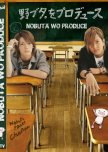
I hate the word "expectation" because it has the rather high potential of being destructive. Many times expectations set us up for unnecessary downfalls. I watched Nobuta wo Produce with rather large expectations. Rather than crashing down on itself, the show scaled up the "wall of expectation" with incredible ease -- a popular show proved itself worthy of my tears.
Nobuta wo Produce attacked almost every one of my soft points. For example, one of the best characters, Uehara Mariko (played by Toda Erika, who did a fabulous job of being hot), despite her hanging relationship having been blown away by truthful words, realized how important that truth was and continued to care for her crush as much as she used to. It takes incredible strength of character to do that. I believe this is part of what makes this drama so special -- the fact that each character learns and grows from their high school experiences.
I found myself tearing up at certain points at almost every episode, many times dabbing my eyes at points that don't even make much sense to shed a tear at (I do this often). I was sorta disappointed at how formulaic each episode was with the blatant "theme" having to be solved by the three main characters, but the writing was done so well and the acting every bit as good as the writing that for the most part I didn't care. Every episode had me at attention and ready to face the next thing it was going to dish out. Near the middle of the series it had my complete trust that it was going to move me by the end of each episode.
This was my second exposure to Kamenashi Kazuya, as I started (and finished) this series after watching the first three episodes of Sapuri. Watching Sapuri, I wasn't too interested in this actor, but in Nobuta wo Produce, he did a good job of being the loner wearing the popular guy mask. Yamashita Tomohisa did particularly well acting as the eccentric self-proclaimed friend; after watching the episode 0 special and ending special you get a clear view of how abstractly different his character and real persona is. And like many people, I first saw Horikita Maki in Densha Otoko with an obviously tiny role as the sister. I felt she didn't really get a chance to spread her wings in Nobuta wo Produce. She did a great job being the one who gave up on the world, her dark, brooding personality screaming for help. I know her role required this, but besides frowns and tearing frowns, topped with several half-assed smiles, it didn't really allow her to cover a decent emotional expanse. Still, her character here was extraordinarily different than Densha's, so that warrants some merit.
Nobuta wo Produce was a great series and knowing full well that it would never get a second season like most other good dramas, I bet you 20 bucks that they could easily come up with another season of material for this. And that is a great thing for a show to have: potential. Excellent drama!
(Originally posted August 1st, 2006.)
Esta resenha foi útil para você?

So when I started watching Kekkon Dekinai Otoko, I assumed that it was just another drama about a man who will go though trials and change his ways in the end. However, the wry humor, simple situations and quirky characterizations made for an incredibly effective story-telling combination. It was just about a man who couldn't get married. It didn't try to be more, and because of this the show was fun and enjoyable to watch.
I've seen Abe Hiroshi in Hero and Dekichatta Kekkon; both were not main roles (I have yet to start on Trick but I'm getting there). Kekkon Dekinai Otoko is the first show I've seen that really utilized his talents. One word describes the key to his success as Kuwano Shinsuke: subtle. He doesn't rely on wacky, over the top action, or even what would seem normal, everyday behavior. His simplistic but well-executed gestures allowed the portrayal of his character to come into its own. It seemed masterful in a way. Natsukawa Yui was one of the more powerful additions to the cast as Hayasaka-sensei. Her emotionally charged, honest reactions complemented the subtly and cynicism of Kuwano-san perfectly. The rest of the cast were decent but nothing noteworthy to speak of. That sounds somewhat negative, but I will say that no cast member made a negative impact on the show. This is actually quite rare (for me, anyway).
The writing was decent. All of the situations in the show were built from the "blocks" created from the first episode. On one hand, this made each coming episode familiar and inviting; on the other hand, seeing the same sets over and over made it feel somewhat constraining, much like watching old situational Friday night comedy shows like Family Matters and Step By Step. Each episode in Kekkon Dekinai Otoko has its own story to tell and each episode tells its story well. I really like how each episode opened with Kuwano-san revealing something new about himself. The episode opening where he works on the Titanic was hilarious. Regardless of the recycled building blocks, the show manages to remain fresh and quirky thanks to excellent acting.
The music in the show is unfortunately forgettable. While the intro performed by Every Little Thing will always remind me of the show, there were no pieces that stuck in my head, despite the fact that, like the majority of doramas, Kekkon Dekinai Otoko uses the same pieces many times over. Shows like Orange Days and Jyoou no Kyoushitsu have distinct scores that are very memorable, so I know it's possible. The music here felt more like an afterthought -- it works, but that's it.
So, Kekkon Dekinai Otoko is very enjoyable. It has its strengths and weaknesses, but the former far outweighs the latter and thanks to the strong acting from the two most prominent roles in the show, there wasn't a single episode I didn't like. Anybody who loves simple, subtle but effective humor will no doubt enjoy this show.
(Originally posted Janary 9th, 2007.)
Esta resenha foi útil para você?

The students, all used to the carefree day to day happenings of school life with study time, sports days, and lunch breaks, immediately feel threatened when their sensei, "Akuma," unleashes her strict set of guidelines complete with harsh penalties and unfair judgements with an unkind demeanor in which to carry them out. The students react in various ways depending on their individual personalities. Some attempt to do everything the teacher says in fear of punishment and some attempt to get others to help take down the teacher. In dealing with the teachers, the relationships between the students fluctuate just as it would have in a business or family environment -- exactly as the teacher seemingly enjoys describing to the students.
It's a tough drama to enjoy because the atmosphere throughout the series is quite dark. Many times I found myself shouting at the teacher or the students for acting a certain way that I found disgusting, but at the same time I valued these negative routes taken not because it made it seem real, but because they evoked questions that I believe everybody should ask themselves -- questions like What makes me happy? and Why do I act the way I act?. When a drama makes me angry, I know it's a good drama because the emotion I feel is real and I realize it has forced me to reflect on myself and my own life.
Amami Yuki, the actress who play Akutsu Maya, did very well in portraying such a devlish teacher. She did so well that for the end credits of each episode, they had to show her after a take and smiling, a facial expression only used when she does something particularly "evil." Afterwords, she dances happily with a bunch of kids in a lively romp that when seen for the first time after episode 1 completely threw me off kilter.
Shida Mirai did an excellent job as the innocent-minded child that cannot understand why the teacher acts the way she does. Perhaps she was chosen for the role because she's incredibly adorable, but when it came down to serious business, she comes through without fault. Her role required her to cry a lot, and while I thought it was a bit overdone, it was done as well as can be expected -- definitely better than all the students. My favorite character, though, was Shindo Hikaru. Dark and silent, her too-calm demeanor hides an intelligence and maturity that's just too friggin' cool. Her actress was okay, perfect for the role but seemed weird when required to smile.
I don't like to spoil much, and I definitely will not say what the ending is, but I will say that contrary to a lot of people out there, I actually enjoyed the series all the way to the ending. The two specials were okay and did very well in explaining the things they set out to explain, but the emotional impact was nowhere near as heavy as the main series.
All-in-all, it's a great series with a message or two for people to think about. Great acting by the main characters and decent acting from most of the kids, the series hides a warm-hearted message in a dark tale.
(Originally posted January 5th, 2007.)
Esta resenha foi útil para você?
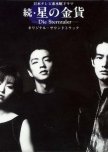
Esta resenha pode conter spoilers
Continuing the excruciating melodrama of the first season, Heaven's Coins 2 delivers more unbelievably frustrating situations, but to its credit completes the series in a very fitting end and is, in a masochistic way, satisfying.I was hoping this time around the drama would recover from its predecessor, and it does, but only at the last episode. This means you need to go through another entire season of false love, real love, and misguided love (that still does not make sense). However, whereas the first season had no logical basis for most of the characters to fall in love, this season at least has the first season to go off of. While this can mean the lack of logic carries over, at least this time around we know what we're getting into. That's not a good thing to say, but it's the best one can make of it.
An example of this continuance of a lack of a basis, Mai Hosho's character has no real reason to love Shuichi. She recovers from this only slightly later on. Takumi's mother had a fitting story, and I believe the writing for her and her performance was a dramatic improvement for her character. And Takumi, who I felt was the best character in the first season, continues to be the best one in this series in terms of writing and performance. While the writing for Miwa Koizumi wasn't that great (again), I felt Tanaka-san's performance was strong. As for Aya, I think Sakai's performance was good, but the writing for her character faltered and her performance adjusted accordingly. Osawa-san was pretty much the same as before and while the character of Shuichi didn't develop much, it did moreso than the first season.
Unfortunately I cannot write much for this review as most of it would require I mention a ton of spoilers, a practice I am completely against. To continue my Bubble Bobble metaphor from my previous review, I will say that I was just as frustrated as I was watching the first season; however, the ending was much better than the previous finale. Not only was it fitting, but it completed the story lines of every character and explored each in satisfying detail.
I rated this two points more than the previous season for the ending, and for the fact that while it is an incredibly frustrating show in terms of writing, it still manages to be memorable.
(Originally posted January 5th, 2007.)
Esta resenha foi útil para você?

This drama is reminiscent of Asunaro Hakusho which has a similar setting without a member with a disability. While Asunaro Hakusho thrives on it's jilting melodramatics and intense character situations, Orange Days shines in it's subdued situations and subtle but powerful moments of emotion. In this respect, Orange Days is calm and serene and urges us that while there are many hardships that we as members of society have to overcome, as long as one has the strength to rely on others as much as ourselves, we will have a fighting chance at overcoming the hurdles presented to us.
The storyline was very well-written and absolutely never overdone. In fact, I'm somewhat surprised that something like this could come out of Japan as I am so used to dramas relying on shocking moments and "evil" characters to accentuate the happy moments they present. The only thing I didn't like were some of the actions of Sae's mother, who in later episodes did things almost opposite of what her character originally did -- it made me seem like I thought I knew her but didn't.
It's very refreshing to see that no awkward zoom-ins or traditional Japanese-ish camera angles were used... if there was English dialogue, this could definitely pass as a Western show. However, the Japanese setting and social actions by the characters are what attracts me to these dramas in the first place, and are very welcome.
Also of particular interest was the mild and emotionally sublime soundtrack. Naoki Sato did an incredible job of capturing the essence of the memories of college life. The feel-good mood of the entire series can be heavily attributed to the soundtrack. The end song Sign by Mr. Children was very well chosen and complimented each episode. And while some people thought Shanghai Honey by Orange Range was jarring in the middle of a particular episode, I thought it did well creating a specific memory for Orange no Kai. It's moments like those that make you wish you could relive your youth.
Shibasaki Kou did a very good job at portraying a jilted, once-famous deaf person. Her character was annoying at times and forced the audience to feel what she herself was going through. At times I wish she could tear up a bit more, as I probably would have cried more myself if she did... it would have made her performance top notch. Tsumabuki Satoshi did very well himself. He never overacted and was able to convey every emotion required of his character. All the other actors did well, too, notably all of Orange no Kai.
One of the few things the show lacked was a strong ending. I suppose this is hard to do with such a subdued, realistic story line. While I enjoyed the series from beginning to end, I think certain plot points could have been resolved in a way that could evoke more emotion than it did. Having been written more realistically, I felt I could associate myself with the main characters, but there were times where I wanted to cry more but realized there's no point in doing so if the character wasn't going to (although there were several points where they did emote well).
Still, Orange Days is a refreshingly subdued drama that never overdoes the dramatics. It does a wonderful job of creating the memories that form the backbone of it's story and development of it's characters. For this reason alone, you maintain a good feeling after each episode and complete the series with a good memory yourself -- watching Orange Days.
(Originally posted August 9th, 2006.)
Esta resenha foi útil para você?




